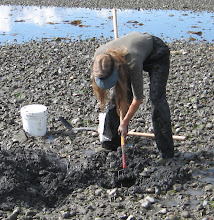Tuesday, November 24, 2009
Alaska Supreme Court Rejects Debt Collectors' First Amendment Defense
by Deepak Gupta
With increasing frequency, debt collectors accused of engaging in abusive tactics in the context of consumer collection litigation have been raising a novel defense based on the Petition Clause of the First Amendment, which guarantees a right of access to the courts. They argue that their conduct constitutes protected petitioning activity and is thus completely immune from liability under the Petition Clause, and the Noerr-Pennington doctrine that developed out of it. In the last few weeks, I've seen new notices of constitutional challenges raised along those lines in several federal district courts.
In May, I flew out to Anchorage to argue the issue in the Alaska Supreme Court, on appeal from a lower-court decision dismissing a consumer's case on petition-clause grounds. (You can find our briefs here and here.)
I'm pleased to report that, on Friday, the Alaska Supreme Court ruled that debt collectors who employ unfair or deceptive tactics during collection lawsuits are not shielded by the First Amendment. The decision is the first appellate ruling on the issue by any court nationwide. As I say in the Public Citizen press release about the case, "the Alaska Supreme Court’s ruling sends the message that debt collection companies can’t get away with abusive tactics simply by hiring lawyers. The court rejected a dangerous new immunity defense that would have created a gaping hole in consumer protection law."
Our case arose out of an attempt by an Anchorage collection agency to sue Robin Pepper, a mentally disabled woman, without providing her with proper notice. The agency sent papers to a nonexistent address, misrepresented to the court that Pepper was competent, and tried to get a default judgment against her. Pepper, represented by Alaska Legal Services, then brought a separate lawsuit, alleging that the collection agency’s practices violated the state Unfair Trade Practices Act. The collection agency asked the court to dismiss Pepper’s case on the theory that its litigation conduct was protected by the First Amendment, and the lower court agreed. Alaska Legal Services asked Public Citizen to handle the case on appeal.
The Alaska Supreme Court broadly rejected the debt collector’s immunity defense, ruling that the First Amendment’s petition clause does not extend to conduct that was unfair, deceptive, and in violation of the Unfair Trade Practices Act. Quoting our brief, the court ruled that debt collectors have “no legitimate interest in pursuing collection litigation without notifying debtors, or in seeking to default incompetent debtors without notice to their lawyers or guardians.”








